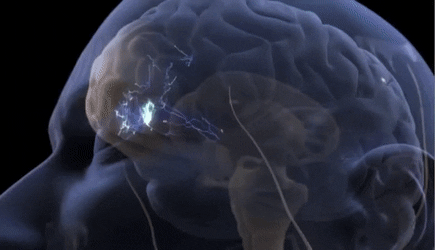The Resilient Brain – Not to Fear our Brain Can Heal
o Video Intro: https://youtube.com/shorts/IgrE8FbdBiU?feature=share
Intro-
The
human brain is truly amazing and there is still so much to learn about it. When
it comes to substance use disorders, we know that the brain is impacted.
However, research continues to show that the brain is very resilient and with
the right recovery plan, the brain can get better. A recovery plan is unique to
each person and includes a variety of aspects ranging from things like
medication, support, physical exercise, different types of therapy, lifestyle
changes, coping skills and much more. People impacted by substance use and
mental health disorders should establish and maintain a multi-faceted recovery
plan that works for their individualized needs. This can promote lifelong
learning, growth, and healing. Recovery and positive change is a process that
really works when we find the right plan and work along with it, making
adjustments as needed along the way.
The Brain Can Recover
“Neuroplasticity” is
defined as the ability of the nervous system to change its activity in
response to intrinsic or extrinsic stimuli by reorganizing its structure,
functions, or connections…”
(Source:
“Neuroplasticity” - https://www.ncbi.nlm.nih.gov/books/NBK557811/ )
The brain can heal in both structure and
function with time and healthy habits. Some things that are proven to promote
healing of the brain to overcome psychological withdrawal include the following
list below:
As a group review this list of proven ways to help the brain heal from psychological withdrawal. Check the items on the list you are working on or planning to work on:
o
Limiting stress and learning stress management
skills
o
Learning and practicing healthy coping skills
o
Participating in healthy peer groups
o
Healthy diet and regular hydration
o
Good sleep habits
o
Therapy
o
Limit stress
o
Learn new recovery skills
o
Join healthy peer groups
o
Get about eight to nine hours of sleep
o
Eat healthy foods
o
Stay hydrated
o
Exercise
o
Emotional and behavioral therapy
(Source:
WebMD)
For a follow up exercise in future groups, see
“Self-Care Review” on the Taking the Escalator website to review an extensive
list of ways to assure health and healing in recovery –
Or go to the Taking the Escalator “Group
Activities by Topic: page and look under
the heading “Self-Care”
https://www.takingtheescalator.com/group-activities-by-topic
Part 3 - TRAUMA is an ongoing emotional/psychological response to an event or series of events that are disturbing or distressing. The events that can cause trauma can vary greatly and can be different between one person and another, based on individual perceptions and experiences. Trauma can do a lot to adversely impact the brain including:
o
chronic stress, anxiety and/or fear
o
feelings of guilt and shame
o
desire for social isolation
o
feelings of hopelessness
o
anger and irritability
o
unpredictable emotions
o
difficulty managing and sustaining
relationships
o
loss of sense of “self”
o
self-destructive behavior
o
poor memory
o
sleep problems including nightmares
o
flashbacks
o dissociation (feeling disconnected from yourself
or with the rest of the world)
(There are also a variety of physical symptoms
that can be associated with emotional trauma including headaches, aches, pains,
etc.)

The brain can heal from trauma with time and
effort. Some things that people who have experienced trauma can do regularly to
help heal include the following:
o Practicing insight and self-awareness (aka mindfulness) by learning to stop, slow down and pay attention to your thoughts and feelings as well as physical sensations which can then help shifting to a focus of calm and effective coping.
o Creativity (art, music, writing, etc.) can be a way to channel emotions in a positive manner.
o Self-care and serenity: Finding peaceful places and situations like walks in nature, taking a relaxing bath, or just resting on the beach, for example can help one cope with trauma
o Avoid substance misuse (or addiction) – There can be a direct correlation between addiction and trauma. People may misuse substances to cope with or avoid trauma (ineffectively) so learning to live without substance use/misuse can promote effective recovery and healing
o Connection helps heal trauma. This can include connection with others we know for support as well as connecting with others we don’t know as well (or at all) by helping others and engaging in volunteer work. For people of faith seeking a deeper spiritual connection can be helpful for healing.
o Therapy – There a variety of therapies for the treatment of trauma. Talk to a licensed therapist, psychiatric nurse practitioner, psychiatrist, or other trained professional to learn more and find something that works for you.
Discuss as a group what
people in the group are doing from this list to help with healing and recovery
For more activities on
Trauma see the Taking the Escalator Trauma Resources page:
https://www.takingtheescalator.com/trauma-resources





No comments:
Post a Comment